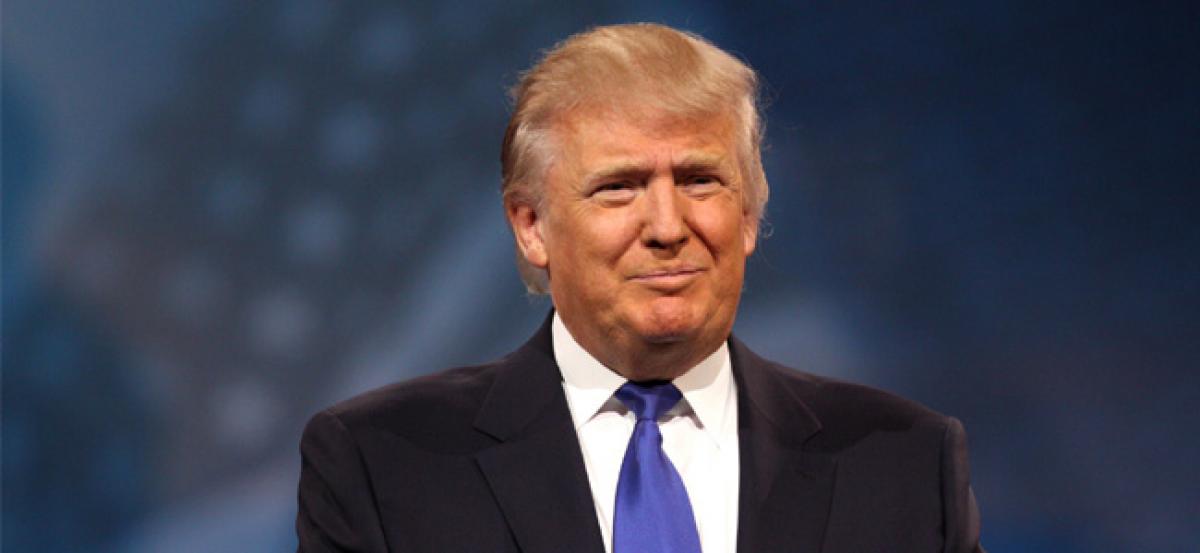Live
- Over 7,600 Syrians return from Turkiye in five days after Assad's downfall: minister
- Delhi BJP leaders stay overnight in 1,194 slum clusters
- Keerthy Suresh and Anthony Thattil Tie the Knot in a Christian Ceremony
- AAP, BJP making false promises to slum dwellers for votes: Delhi Congress
- 'Vere Level Office' Review: A Refreshing Take on Corporate Life with Humor and Heart
- Libya's oil company declares force majeure at key refinery following clashes
- Illegal Rohingyas: BJP seeks Assembly session to implement NRC in Delhi
- Philippines orders full evacuation amid possible volcanic re-eruption
- Government Prioritizes Welfare of the Poor, says Dola Sri Bala Veeranjaneyaswamy
- Two Russian oil tankers with 29 on board damaged due to bad weather
Just In

The incoming US administration’s tough talk against China has set the stage for showdown on everything from security to trade and cyberspace, but contradictory signals are sowing uncertainty over how far President-elect Donald Trump is prepared to go in confronting Beijing.
Washington : The incoming US administration’s tough talk against China has set the stage for showdown on everything from security to trade and cyberspace, but contradictory signals are sowing uncertainty over how far President-elect Donald Trump is prepared to go in confronting Beijing.
Highlighting the contested South China Sea as a potential flashpoint, Trump’s Secretary of State nominee Rex Tillerson threw out an explosive challenge to Beijing by calling for it be denied access to artificial islands in the strategic waterway.
A Trump transition adviser told Reuters that Tillerson, Trump’s pick to be America's top diplomat, did not mean to suggest the new administration would impose a naval blockade, which would risk armed confrontation with China, something the new administration was not seeking.
But another official authorised to speak on behalf of the transition team pushed back on that view, saying Tillerson “did not misspeak" when he said China should be barred from its man-made islands.
The transition adviser told Reuters about specifics under consideration, such as basing a second aircraft carrier in the region, deploying more destroyers, attack submarines and missile defense batteries and expanding or adding new bases in Japan and Australia.
China's Foreign Ministry said it could not guess what Tillerson meant by his remarks, which came after Trump questioned Washington's longstanding and highly sensitive "one-China" policy over Taiwan. But an influential Chinese state-run tabloid warned that blocking Chinese access to South China Sea islands would require the United States to "wage war."
Trump's pick for Defence Secretary, retired Marine General James Mattis, did not endorse Tillerson's message on the South China Sea, which would seem at odds with Washington's own longstanding commitment to freedom of navigation for all.
Asked about the remarks at his confirmation hearing on Thursday, Mattis said China's actions in the South China Sea were part of a broader attack on the world order, but said the State, Defense and Treasury Departments needed to put together an integrated policy "so we are not dealing with an incomplete or an incoherent strategy."
Trump has threatened to declare China a currency manipulator - even though economists say Beijing has been seeking to prop up, not weaken, its currency. He also threatened to slap punitive tariffs on Chinese goods, risking a trade war that could hurt both countries and global economy.
Trump advisers dismiss concerns their approach could prove risky or counterproductive, arguing that a "peace through strength" stance will put real muscle behind US policy in the region after decades of under-resourcing due to US distractions elsewhere in the world.
Analysts say confronting Beijing over hot-button issues like Taiwan and the South China Sea could trigger strong reactions, especially in a year when President Xi Jinping is seeking to further consolidate power at a congress of the Communist Party.
Zha Daojiong, a professor at Peking University, said the theme of clash of civilisations was becoming increasingly popular in Chinese circles and this was ominous. "This does not bode well at all ... And it means that the continued war drums from America on the South China Sea would not help matters at all."
By David Brunnstrom & Matt Spetalnick

© 2024 Hyderabad Media House Limited/The Hans India. All rights reserved. Powered by hocalwire.com







